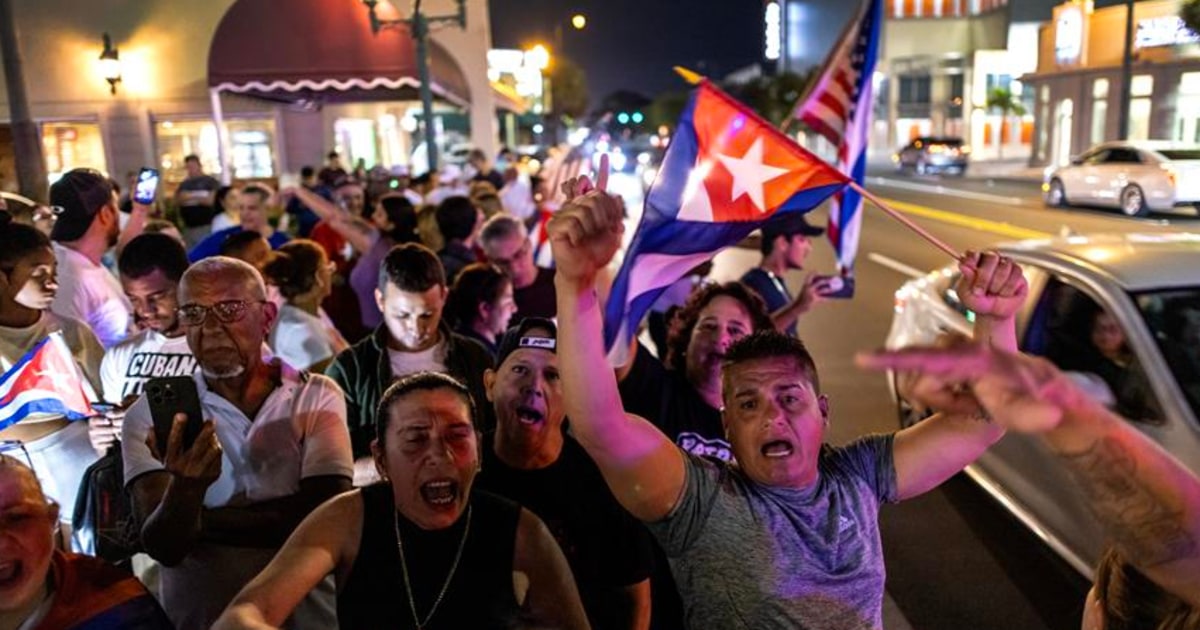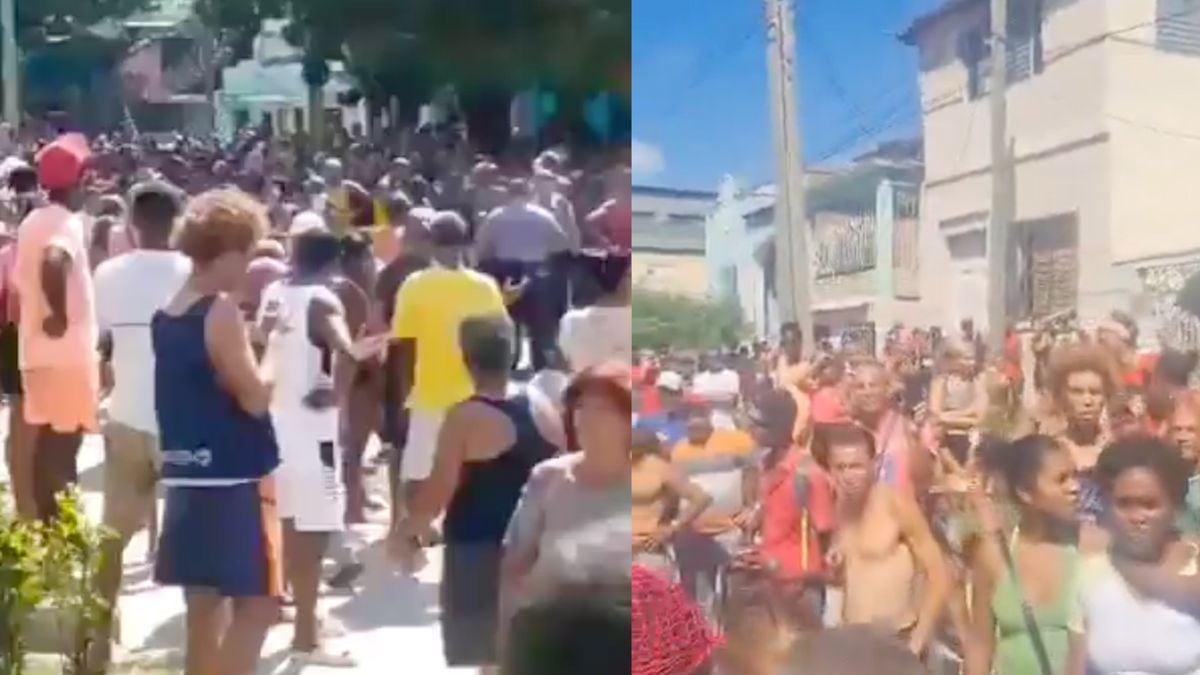Protests in China: That's why people are now taking to the streets
Created: 11/28/2022, 12:29 p.m
By: Sven Hauberg
This has not been the case for decades: China is being shaken by a violent wave of protests.
We explain the background of the demonstrations.
Munich/Beijing/Shanghai – Since the weekend, people in China have been taking to the streets to demonstrate against the government's corona measures.
These are apparently the largest protests the country has seen since the bloody crackdown on the pro-democracy movement in 1989.
It is not yet possible to foresee how the situation will develop in the coming hours and days.
Nevertheless, we try to answer the most important questions.
Why are people in China taking to the streets now?
As the rest of the world tries to live with the coronavirus, China has been tackling every outbreak, no matter how small, with lockdowns and curfews for nearly three years.
There has been displeasure with this hard zero-Covid policy for a long time, and local protests keep happening.
What is new is that this time people took to the streets in many parts of the country almost simultaneously and videos and photos of the protests spread throughout the country.
The specific trigger for the weekend demonstrations was a house fire in Ürümqi, the capital of Xinjiang province in the north-west of the country.
Ten people died last Thursday.
Large parts of Xinjiang have been under a lockdown for months, which is why there were suspicions in China that the fire brigade did not arrive at the scene of the accident in time due to the corona measures.
Local authorities deny this.
Like here in Beijing, people took to the streets in many Chinese cities at the weekend.
© Ng Han Guan/dpa
Protests began Saturday, many as a memorial service for those killed in the wildfire.
On the one hand, people took to the streets out of sympathy for the dead, but on the other hand they were afraid of becoming victims of a fire themselves.
China's authorities keep blocking off blocks of flats or blocking entrances to buildings when positive cases or even only suspected cases become known.
The fear of being trapped in a fire is great.
Are the protests also directed against China's authoritarian system or just against the Corona measures?
Hard to say.
In individual cases, the protests may also be directed against the system itself.
For example, slogans such as "Down with Xi Jinping" were chanted, and an end to the sole rule of the Chinese Communist Party was also occasionally demanded.
A few weeks ago, a protest on a road bridge in Beijing caused a stir when a man who was later dubbed "Bridge Man" unfurled protest banners against head of state and party leader Xi.
“Remove the dictator and traitor Xi Jinping,” it read.
In general, however, the demonstrators who are currently taking to the streets are primarily concerned with the corona measures, which have been causing frustration for months.
Where are the protests taking place?
Protests have been reported from many cities in China since the weekend, pictures and videos of which are spreading through social networks, which are strictly censored in China.
The largest protests apparently took place in the capital Beijing and in the economic metropolis Shanghai, especially on Ürümqi Street, which is named after the capital of Xinjiang.
But there were also protests in Chengdu in the west of the country, in Guangzhou in the south, in central China's Wuhan and elsewhere.
also read
Loophole: Putin's oil keeps flowing to Britain - for nearly £800m since March
Putin is exposed twice by an ally in a very short space of time
What are the protests like?
The protests in China take many forms.
People take to the streets, shout slogans, hold up signs, but sometimes just a blank sheet of paper.
White is the color of mourning in China;
But a blank sheet of paper is also a silent protest against the massive restrictions on freedom of expression in the People's Republic.
Others sing the international or China national anthem, the "March of the Volunteers".
Still others are whistling the protest song "Do You Hear the People Sing?" from the musical "Les Misérables".
At universities, notices were pasted on walls demanding “freedom”.
In the social networks in China, such as Weibo, there is currently almost no evidence of the protests - the censors are apparently taking action.
How are the authorities reacting?
Several arrests were made, especially in Shanghai.
The police also used batons and armored vehicles, as can be seen in several videos.
A journalist from the BBC was also arrested in Shanghai and said he was mistreated by police officers.
"Journalists from several media outlets have been physically harassed by police while covering the unrest," the China Foreign Correspondents' Club said on Monday.
How does the Chinese media report?
China's state media does not report on the demonstrations.
The People's
Daily
, the official party newspaper of China's communists, published an op-ed Monday defending the government's coronavirus measures, apparently in response to the protests: "Don't be hesitant, don't back down, keep the strategic resolve, have firm faith victory,” the article reads.
At a press conference in Beijing on Monday, a Chinese Foreign Ministry spokesman responded to a question from a foreign journalist about the demonstrations that the question did not correspond to the "facts", saying: "We believe that with the leadership of the Chinese Communist Party and the support of the Chinese people, our fight against Covid-19 will be successful.”
Why is China pursuing a zero Covid policy?
In China, the number of cases has been increasing for days, and more than 40,000 new infections were recently reported.
China's government has so far refused to use western vaccines in the fight against the corona virus - apparently out of national pride.
The Chinese vaccines are also very effective, but only after the third vaccination.
The problem is that only two-thirds of those over 60 have received two doses of the vaccine, and only 40 percent have received the third spade.
So China's government fears hundreds of thousands of deaths if it lets the pandemic run wild.
In addition, Beijing repeatedly points out that the country's health system is less efficient than in Western countries.
However, this also applies to many other countries such as India - and there people have long been much more relaxed about the virus.
Are protests rare in China?
no
There are always protests in China, and human rights activists and experts count thousands of incidents a year.
However, these protests are mostly directed against injustices at the local level - corrupt officials, outstanding wages, poor working conditions or Covid measures that are perceived as unfair.
For decades there have not been demonstrations in several cities at the same time because of the same problem.





/cloudfront-eu-central-1.images.arcpublishing.com/prisa/MTSQ4Y67KD7UYSQ2QOVVGGYB5I.jpg)



